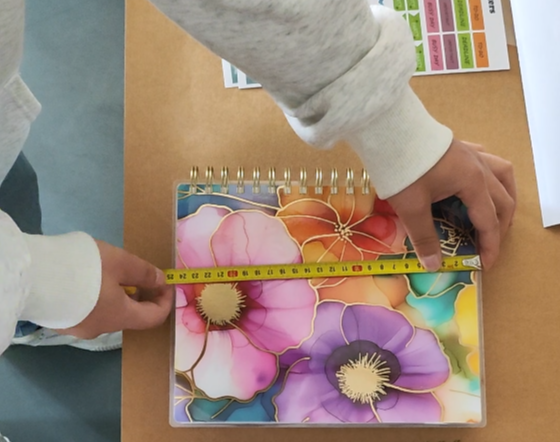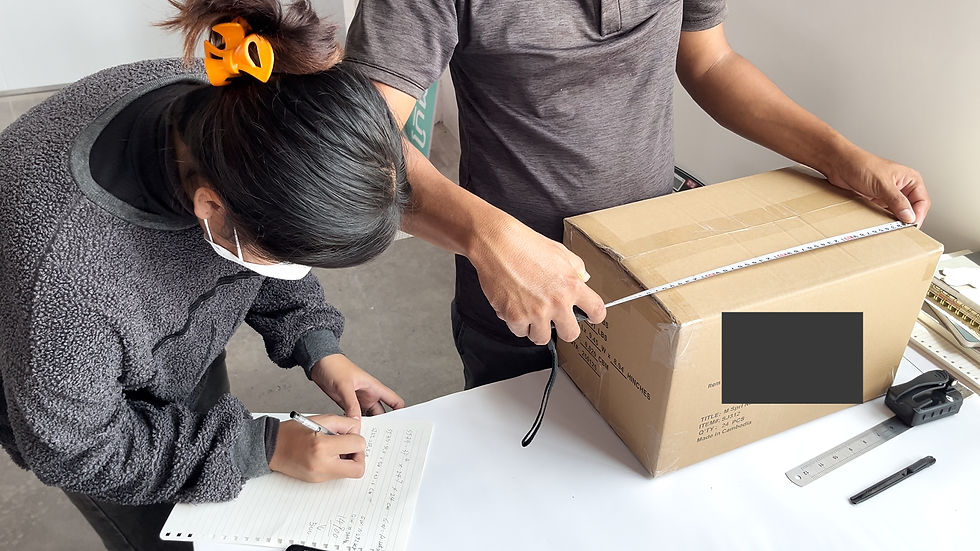Ensuring Notebook Quality: The Importance of Pre-Shipment Inspection
- Lion Paper Team

- Jul 4, 2025
- 5 min read
Quick Content Reach:
Why Notebook Quality Pre-Shipment Inspection Matters
When it comes to manufacturing notebooks, ensuring quality control before shipment is essential. Pre-shipment inspection (PSI) helps guarantee that the products sent to customers meet the required quality standards. This process involves a comprehensive inspection of the finished products, packaging, and labeling to prevent potential issues and avoid costly returns or customer dissatisfaction.
In this article, we'll explore why pre-shipment inspections are crucial for maintaining notebook quality, how they can save costs in the long run, and how they protect both manufacturers and consumers. If you're in the notebook business, understanding the importance of PSI will help you streamline your processes and enhance your customer experience.

1. What is Pre-Shipment Inspection?
Pre-shipment inspection is a critical process that occurs once the production of notebooks is completed but before they are shipped to customers. This inspection typically includes a detailed review of the product’s appearance, functionality, and packaging.
PSI is essential for ensuring that each notebook meets the agreed specifications in terms of design, quality, and quantity. It is a preventive measure that identifies defects or discrepancies early, helping avoid shipping defective products to customers.
Key elements of pre-shipment inspection include:
Product Quality Check: Verifying that the notebooks meet the expected quality standards.
Packaging Inspection: Ensuring proper packaging to prevent damage during transit.
Compliance Check: Confirming that the packaging and labeling comply with international standards.。

2. The Role of Third-Party Inspections
Many manufacturers and buyers opt for third-party inspection services to add an extra layer of credibility and ensure impartiality. Third-party inspection companies are independent organizations that specialize in conducting quality checks on behalf of both the buyer and the seller.
Why Choose Third-Party Inspection?
Objectivity: Third-party inspectors are impartial and provide unbiased assessments.
Expertise: These companies have specialized knowledge of international standards and regulations.
Consistency: Third-party inspectors ensure that every batch undergoes the same rigorous checks, providing a high level of consistency.
Working with trusted third-party inspection agencies ensures that any issues are detected before the products leave the factory, reducing the risk of costly returns or damage to your brand reputation.
3. What Gets Checked During Pre-Shipment Inspection?
During PSI, several aspects of the notebook are carefully checked to ensure they meet quality standards. The key areas of focus include:
1. Quality of Materials
Notebooks are often made using various materials such as paper, covers, and bindings. The quality of these materials is assessed to ensure they meet the agreed specifications. For example, paper thickness, texture, and print quality are all critical aspects checked during PSI.
2. Functionality
Pre-shipment inspections also ensure that the notebooks function as intended. This includes verifying that the pages are bound securely, the ink does not bleed through the paper, and any additional features (such as pockets or elastic bands) work properly.
3. Aesthetic Appearance
Aesthetic flaws, such as misprints, cover damage, or color discrepancies, are checked to maintain a professional appearance. The notebooks are also checked for overall visual appeal, ensuring that they meet the brand’s design standards.
4. Packaging and Labeling
Packaging plays a crucial role in protecting notebooks during transit. Pre-shipment inspection ensures that the packaging is sturdy and properly labeled. This includes checking box dimensions, quantity, and labeling accuracy to avoid shipping errors or issues with customs.
4. Benefits of Pre-Shipment Inspection
Implementing pre-shipment inspections offers several benefits to manufacturers, retailers, and customers alike. Here are the main advantages:
1. Ensures Product Quality
Pre-shipment inspections provide peace of mind by ensuring that only high-quality notebooks are shipped to customers. It guarantees that the product meets customer expectations in terms of quality, functionality, and design.
2. Reduces the Risk of Returns
Identifying and addressing issues before shipment helps reduce the likelihood of returns or complaints. If defects are detected during PSI, they can be corrected before the products are sent to the customer, saving time and costs.
3. Saves Costs in the Long Run
While third-party inspections may involve a fee, they help save money in the long run by preventing the costs associated with returned products, customer dissatisfaction, and damaged brand reputation.
4. Protects Your Brand Reputation
A quality-controlled shipment ensures that customers receive the best possible product. Consistently delivering high-quality notebooks builds trust and loyalty, which enhances your brand’s reputation over time.
5. How to Implement Effective Pre-Shipment Inspections
To ensure an effective pre-shipment inspection process, manufacturers must take several steps:
1. Establish Clear Quality Standards
Before production begins, clearly define the quality standards that the notebooks must meet. This includes specifications for paper type, binding, size, and printing quality.
2. Hire Professional Inspectors or Agencies
Whether you use in-house quality control teams or hire third-party agencies, ensure that experienced professionals carry out the inspections to meet international standards.
3. Perform Random Sampling
Random sampling helps to ensure that the inspection is representative of the entire batch. Typically, a percentage of the total shipment is inspected, with a focus on high-risk areas that may affect the product’s functionality or appearance.
4. Document the Inspection Results
It’s essential to document the results of each inspection to create a detailed record. This documentation can be used to address any future disputes or quality issues and serve as proof of due diligence.
Conclusion: Ensuring Your Notebooks Are Ship-Ready
Pre-shipment inspection is a vital step in the manufacturing process that protects your brand, products, and customers. By catching defects before the notebooks are shipped, you reduce the risk of returns, increase customer satisfaction, and safeguard your brand’s reputation.
Investing in a thorough pre-shipment inspection process, whether through internal or third-party inspection services, ensures that every notebook delivered is of the highest quality. This is not just a step in the production process, but a commitment to quality, trust, and excellence.
Looking to ensure the quality of your notebooks? Contact Lion Paper Products for reliable, high-quality custom notebooks and a seamless production process that guarantees your products are ship-ready!
FAQs:
Q1: What is pre-shipment inspection?
A: Pre-shipment inspection is a process where products are checked for defects and compliance with specifications before they are shipped.
Q2: How are notebooks checked during pre-shipment inspection?
A: Key areas include paper quality, binding, functionality, aesthetics, and packaging.
Q3: How do I know if the pre-shipment inspection was thorough?
A: Look for detailed inspection reports, random sampling of products, and evidence of third-party involvement.
Q4: What are the common defects found in notebooks during PSI?
A: Common defects include printing errors, binding issues, misaligned pages, and damaged covers.
Are you looking for a reliable manufacturer? Reach out to Lion Paper for a free quote and consultation. Let’s collaborate on creating custom writing paper products that will set your brand apart from the competition.







Comments